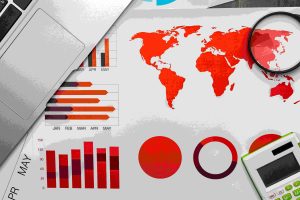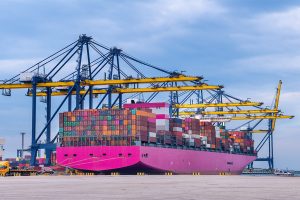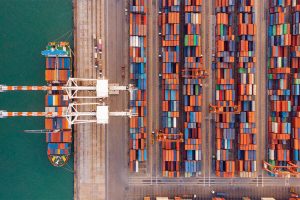Are you ready to elevate your business to new heights? Mastering the ways to import from China could be your key to success. 2024 holds promise for remarkable growth. With the right knowledge and guidance, your business will transcend borders and propel to new horizons.
Every business wants to stay ahead in competition. Imports open doors to growth, profitability, and limitless opportunities. But if you don’t do it correctly, you may lose the real benefits you could get from the right import process.
In our guide, we will navigate the allure and complexity of importing from China. We will explore pathways to safety, success, and prosperity to ensure your business thrives in international trade. We’ll also discuss the advantages and challenges of importing from China and how to do it correctly and safely.
Get ready for a journey that maximizes your business potential in 2024 and beyond.
Why Do Businesses Import from China?
Businesses across the world turn to China for their import needs for a multitude of compelling reasons. China has emerged as a global sourcing hub due to its unique advantages, making it an attractive destination for international trade.
Let’s explore some of the key reasons behind this choice.
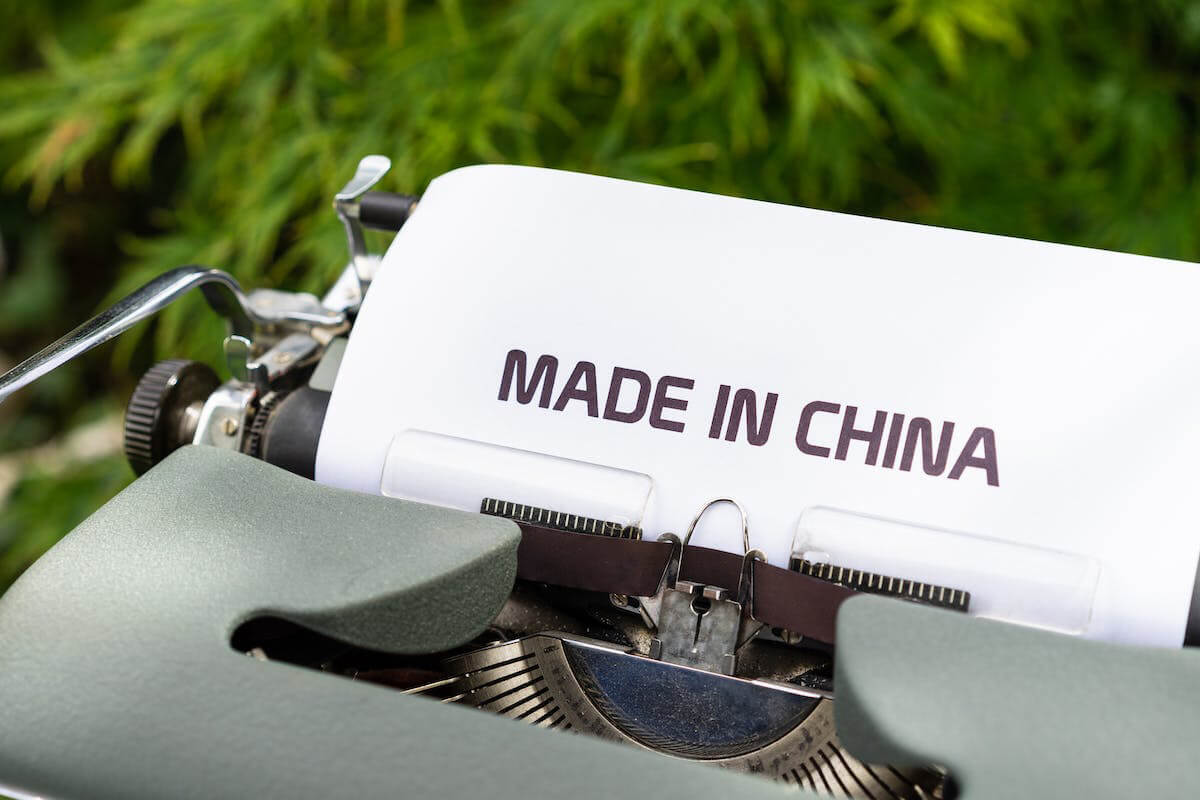
Advantages of importing from China
Importing from China presents a myriad of advantages that go beyond mere cost savings. Let’s explore them in more detail below:
- Cost-effectiveness: One of the most prominent advantages of importing from China is the significant cost-effectiveness it offers. China’s relatively low labor costs and economies of scale allow businesses to procure products at a fraction of the cost compared to local manufacturing. The cost advantage extends beyond labor, encompassing competitive pricing for materials, production, and transportation.
- Wide range of products: China’s manufacturing prowess is perhaps best exemplified by the vast array of products it can produce. Whether you’re in the market for consumer goods, electronics, textiles, heavy machinery, or nearly any other product category, China can meet your needs. The ability to source such diverse products from a single location simplifies supply chain management and widens the spectrum of business opportunities.
- Manufacturing capabilities: China’s manufacturing capabilities are overwhelming. The country boasts a well-developed infrastructure, a highly skilled and adaptable workforce, and advanced technology. These factors collectively contribute to China’s reputation as a manufacturing powerhouse. Importing from China means access to high-quality products that meet international standards.
- Innovation and technology: One of the standout advantages of importing from China is the access to cutting-edge innovation and technology. China’s rapidly advancing tech sector continually drives product development and improvement. Whether it’s incorporating the latest advancements in electronics or harnessing innovative manufacturing techniques, China’s commitment to progress keeps businesses at the forefront of industry trends.
- Flexible production: China’s manufacturing landscape is characterized by remarkable flexibility. It can cater to the needs of both small-scale enterprises and large corporations. Hence it adapts to shifting demands and timelines. This versatility in production capacity ensures that businesses can efficiently respond to market fluctuations and tailor orders to their exact requirements.
- Supply chain efficiency: Efficiency is a hallmark of China’s supply chain management. The country’s well-established infrastructure, including an extensive network of ports, highways, and railways, enables smooth logistics and timely deliveries. This streamlined supply chain efficiency minimizes delays, ultimately benefiting businesses with faster time-to-market and improved customer satisfaction.
- Customization options: China’s manufacturing sector offers a remarkable level of customization. Businesses can collaborate closely with suppliers to develop products tailored to their unique specifications. This capacity for customization fosters brand differentiation and provides a competitive edge in the market.
- Global trade experience: China’s extensive global trade experience is a compelling advantage for businesses. Over the years, China has established itself as a prominent player in the international trade arena, boasting well-developed trade relationships with numerous countries. This experience translates to a deep understanding of global trade dynamics, regulations, and standards. It provides businesses with a smoother and more informed path when engaging in international commerce.
- Scalability: China’s manufacturing capabilities are not just impressive in terms of product diversity. They also extend to scalability. Businesses can easily adapt to market demands by scaling up or down. Whether you’re launching a new product or expanding into new markets, China’s manufacturing sector can efficiently accommodate your evolving needs.
- Networking opportunities: China’s status as a global trade hub offers extensive networking opportunities. The country hosts a wide array of trade fairs, industry events, and business forums that bring together international and domestic players. These platforms provide businesses with valuable opportunities to forge new partnerships, establish connections with suppliers, and gain insights into market trends.

Challenges of Importing from China
While importing from China offers a plethora of advantages, it’s not without its share of challenges. Here are some of the common obstacles that businesses may encounter when engaging in international trade with China.
- Language and communication barriers: Chinese remains the primary language of trade in China. While English is widely spoken, misunderstandings or miscommunications can still occur. Overcoming these barriers often requires skilled interpreters or translators and a commitment to effective cross-cultural communication.
- Quality control challenges: Ensuring consistent product quality can be another hurdle in the import process. While China is known for manufacturing excellence, variations in quality can arise due to some factors. They may include differing quality standards, supplier oversight, and production methods. Quality may most prominently be compromised with the cheaper products.
- Intellectual property concerns: Protecting intellectual property is a critical concern when importing from China. Instances of trademark violations, and intellectual property theft have been reported. Businesses must take steps to safeguard their IP rights. This may involve securing patents, trademarks, and other legal protections.
- Fake products: Fake products present a significant challenge when importing from China. Counterfeit or low-quality items can deceive buyers, harm consumers, and damage business reputations. You may get an entirely different product as you expected from seeing its pictures. Vigilant supplier vetting, quality control, and intellectual property protection are essential to address this issue.
- Tariffs and import duties: Tariffs and import duties are additional costs that businesses must consider when importing from China. These fees can vary based on product categories, trade agreements, and changes in international trade policies. Businesses need to conduct thorough research on applicable tariffs, duties, and trade agreements.
- Long shipping times: Long shipping times can pose logistical challenges for businesses importing from China. The physical distance and potential delays in customs clearance can extend the lead time for products to reach their destination. Businesses need to factor in these extended timelines when managing inventory and meeting customer expectations.
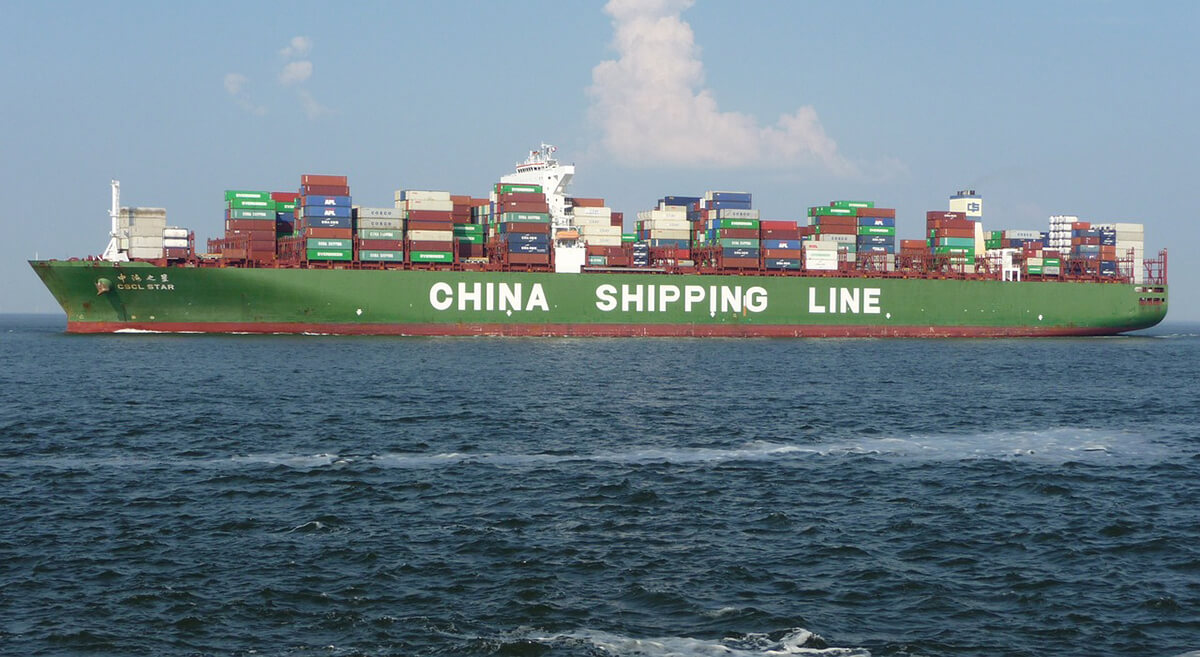
How to Import Products from China Safely in 2024?
Importing products from China can be a rewarding venture. But ensuring safety and success in your importing endeavors requires careful planning and attention to several key factors.
Let’s explore the steps and considerations to help you import from China safely in 2024.
Product research
Conducting thorough product research is the foundation of a successful importing process. You need to identify the specific products you wish to import. Try your best to understand their market demand, pricing trends, and potential suppliers.
Evaluate factors such as product quality, brand reputation, and consumer preferences. Leverage market research tools, attend trade shows, and engage with industry experts to gather essential insights.
Legal and regulatory considerations
Navigating the legal and regulatory landscape is paramount. You must have robust and updated information on the import regulations and requirements about your products and the countries you intend to export to.
This includes understanding customs procedures, safety standards, labeling, and compliance with local laws. Ensure your product adheres to quality and safety standards and is properly documented to meet import and export regulations.
Importance of communication
Effective communication is the linchpin upon which successful transactions are built. Clear and open communication with your Chinese suppliers is instrumental for a pleasant import experience.
It ensures that both parties understand expectations and requirements. You need to foster transparency and clarity in your discussions. This will reduce misunderstandings and align all parties involved in the import process. Good communication helps resolve issues promptly and prevents conflicts.
Quality control and inspections
Quality control and inspections are essential in upholding product standards during import. They confirm adherence to set specifications and criteria, reducing defect risks. Early detection and rectification of flaws prevent subpar products from reaching consumers and damaging brand reputation.
While importing from China, you need to ensure that the compliance with safety and regulatory standards are met. Try to have an agreement with your supplier for a robust quality control system that bolsters supplier accountability and encourages adherence to specifications and quality expectations. You may also ask your supplier to produce the certificate of conformance with every product.
Intellectual property protection
To protect your intellectual property, you must take proactive measures. Secure patents, trademarks, and legal protections for your products.
Thoroughly vet your Chinese suppliers to ensure their trustworthiness and commitment to respecting your intellectual property rights. Embed clear IP clauses in your contracts to establish the rules for protection.
Logistics and shipping
Efficient logistics and shipping are essential for a smooth importing process. Factor in the potential delays caused by the physical distance and customs processes.
To mitigate these challenges, you might consider strategies like air freight or maintaining buffer inventory. Plan carefully to ensure your products arrive on time and meet customer expectations.
Building long-term relationships
Building lasting relationships with your Chinese suppliers is not just beneficial; it’s essential. Nurturing these partnerships ensures favorable terms, reliable supply chains, and a deeper understanding of the Chinese market.
Achieve this by maintaining open and transparent communication, building trust, and showing mutual respect. These long-term collaborations will ensure smoother operations and growth potential for your business.

Should You Import from China Yourself?
In international trade, especially when importing from China, a crucial question arises: should you go solo or seek assistance? Importing from China offers vast potential but comes with intricate challenges, making the decision between self-importing and seeking help pivotal.
Let’s learn what expertise you must have to import from China successfully:
Knowledge of import regulations
Understanding import regulations is crucial when importing from any country, including China. You need to be aware of the specific rules, documentation requirements, and compliance standards set by your home country.
Importing goods that don’t meet these standards can result in delays, fines, or even rejection of your shipments. If you have experience or are willing to thoroughly research and understand these regulations, you can consider self-importing.

Supplier verification skills
Supplier verification is a crucial aspect of international trade, especially when dealing with Chinese suppliers. You need to have a firm grip on assessing the legitimacy, reliability, and suitability of potential suppliers.
You need to research the supplier’s background, confirm their business credentials, and evaluate their reputation. You also need to have a deep understanding of Chinese business practices to identify reliable suppliers and establish trustful relationships.
Quality control expertise
Ensuring the quality of the products you import is paramount for maintaining your brand’s reputation and customer satisfaction. Quality control expertise is essential to set and enforce quality standards, conduct inspections, and communicate your specific requirements to Chinese suppliers.
You must possess robust quality control skills to effectively manage the production process, maintain product consistency, and minimize the risk of receiving substandard goods.
Logistical competence
Logistical competence involves a variety of skills and knowledge. You need to be an expert in transportation, customs, inventory management, warehousing, and risk mitigation.
If you possess a strong understanding of logistics and are comfortable managing the movement of goods from China to your destination, it may be more feasible to self-import. This includes handling shipping and transportation decisions, customs clearance, inventory management, and problem resolution.
Time and effort commitment
Importing from China involves extensive research, negotiation, ongoing communication, management, problem-solving, and regulatory compliance. If you have the capacity and are willing to dedicate the required time and effort, self-importing can be a viable option.
However, if you find these demands overwhelming or have limited time to manage the intricacies of importing, seeking assistance from professionals experienced in international trade can simplify the process and reduce potential challenges.
Ability to handle legal issues
Dispute resolution is an integral part of international trade. It’s essential to be prepared for potential conflicts that may arise. Effective dispute resolution involves a knowledge of dispute resolution methods, both within your home country and in international trade contexts.
You must possess the ability to navigate and resolve legal conflicts effectively to import products from China yourself. Otherwise, legal disputes may have a large impact on your import experiences.
Risk management skills
You need to have the ability to assess potential risks, such as supply chain disruptions, currency fluctuations, and geopolitical factors. You must be able to anticipate and plan to make your imports risk-free.
The solutions may involve alternative suppliers, financial buffers, and logistics strategies. If you possess strong risk management skills and can effectively assess, plan for, and adapt to potential challenges, self-importing becomes more feasible.

The Importance of a Sourcing Agent in Importing from China
Do the qualities required to import from China yourself sound daunting to you? Don’t worry! China Sourcing agents have got your back. They serve as intermediaries and assist you with almost every factor that we discussed above.
Among many roles that professional sourcing agents in China can perform, let’s discuss the most important ones below:
Local expertise
Sourcing agents possess an intricate understanding of the Chinese market. Their knowledge of the local market is cultivated through years of experience and immersion in the business landscape. They are well-informed about market trends, including which products are in demand, pricing fluctuations, and emerging opportunities. They can offer valuable insights into when and what to source.
Supplier verification
Experienced and top China sourcing agents ensure that international buyers connect with reliable, reputable suppliers in China. They conduct due diligence, thoroughly vetting potential suppliers to confirm their legitimacy and legal status. This step verifies business licenses and certifications to guarantee they align with Chinese regulations.
Quality inspections
They can perform on-site inspections and provide an on-the-ground assessment of a supplier’s production capabilities, quality control processes, and overall suitability. These physical verifications are crucial in ensuring the supplier meets the buyer’s specific requirements.
Supplier history and reputation
Sourcing agents may also validate reference checks by contacting previous clients and industry references. These checks provide insights into the supplier’s track record, performance, and reliability in delivering quality products. By drawing from past customer experiences, sourcing agents can evaluate whether the supplier aligns with the buyer’s standards and expectations.
Negotiation skills
One of the central pillars of a sourcing agent’s role is their negotiation skills. Sourcing agents leverage their expertise to engage in skillful negotiations with Chinese suppliers. They strive to obtain competitive pricing, advantageous payment terms, and other essential conditions. Their understanding of local customs and practices can significantly benefit international buyers to ensure the best deals possible.

Language and cultural proficiency
Sourcing agents have the natural ability to communicate effectively in the local language. They completely understand the nuances of Chinese business culture. This linguistic and cultural proficiency not only facilitates smooth communication with suppliers but also fosters trust and understanding. It minimizes the chances of miscommunication, misunderstandings, and cultural missteps.
Quality control and inspection
Sourcing agents employ rigorous quality control measures. They can perform quality and quantity inspections and stringent quality checks throughout the production process. This meticulous oversight helps ensure that products meet the specified standards and adhere to the buyer’s requirements. It safeguards international buyers from receiving substandard or defective products.
Logistics and shipping management
Sourcing agents are well-versed in the intricacies of transportation, customs clearance, and international shipping. They manage the logistics process, selecting the most suitable shipping methods, handling customs documentation, and addressing any potential logistical challenges. Their expertise in logistics ensures that goods are transported efficiently and reach their destination on time.
Time and cost efficiency
Time and cost efficiency are two fundamental considerations in international trade. Sourcing agents contribute to both by streamlining the procurement process. They have the expertise to minimize time-consuming bottlenecks and identify cost-saving opportunities. Their in-depth understanding of the Chinese market and business practices allows international buyers to achieve more efficient and cost-effective sourcing, ultimately optimizing their import operations.
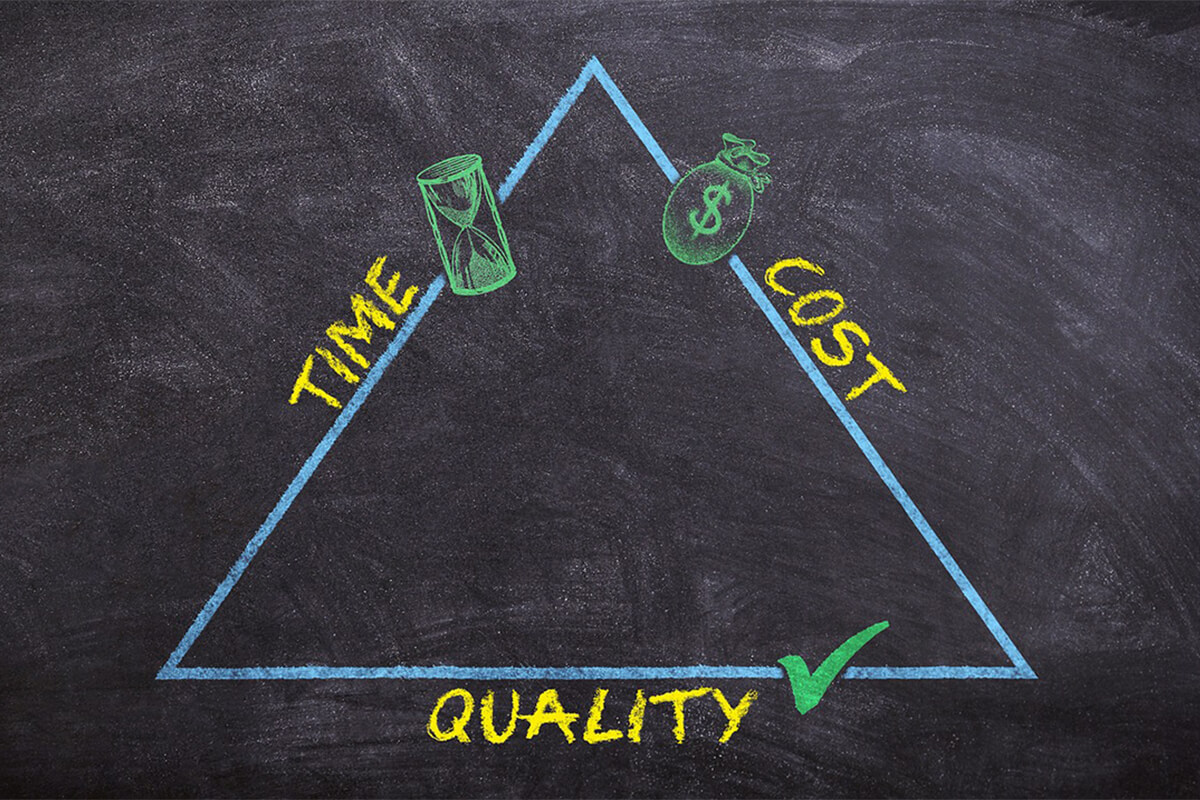
In short ,a sourcing agent can be of huge assistance especially when you cannot visit China. But it is also crucial to find a reliable agent who can really help you in sourcing from China successfully.
How can MySourcify Help International Bulk Dealers?
MySourcify plays a vital role in assisting international bulk dealers in their sourcing and procurement activities. We help you optimize your import process and enhance your business efficiency.
Here’s how MySourcify can benefit international bulk dealers:
- Supplier Identification: MySourcify assists international bulk dealers in identifying reputable suppliers in China. Leveraging their extensive network and local expertise, we connect buyers with suppliers who can meet their specific bulk purchase requirements.
- Quality control and inspection: MySourcify conducts multiple quality checks at the production site during the manufacturing process. This includes pre-production inspections, in-process inspections, and pre-shipment inspections to verify quality and safety standards.
- Negotiation and pricing: MySourcify’s team is skilled in negotiation, helping bulk dealers secure competitive pricing, favorable payment terms, and other essential conditions. Our expertise in the art of negotiation ensures the best prices for bulk buyers.
- Logistics and shipping: MySourcify manages the logistics and shipping process, ensuring that goods are transported efficiently and arrive at their destination on time. This includes selecting the most suitable shipping methods, handling customs clearance, and addressing any logistical challenges that may arise.
- Compliance: Import regulations and compliance can be complex. MySourcify assists international bulk dealers in navigating these regulations, ensuring that their import activities are in line with local laws and standards. We help avoid costly compliance issues and delays.

- Market insights: MySourcify provides international bulk dealers with up-to-date market insights and trends. We keep clients informed about changes in demand, pricing dynamics, and emerging opportunities, helping buyers make informed decisions on when and what to source in bulk.
- Customized solutions: MySourcify offers personalized solutions to match the unique needs of international bulk dealers. Whether clients are looking for specific product categories, large quantities, or specialized sourcing requirements, MySourcify tailors their services to meet these demands.
- Risk mitigation: MySourcify helps mitigate risks associated with sourcing products internationally. By conducting thorough due diligence on suppliers and implementing quality control measures, we minimize the risk of receiving substandard or defective products, protecting the interests and reputation of bulk buyers.
- Efficient communication: Effective communication is at the core of successful international sourcing. MySourcify’s language and cultural proficiency ensures that clear and accurate communication is maintained with Chinese suppliers, fostering trust and understanding in business relationships.
- International fulfillment: MySourcify offers international fulfillment services, handling the entire process from sourcing to order fulfillment and shipping to international destinations. This end-to-end service simplifies the import process, providing bulk buyers with a comprehensive solution for their sourcing needs.
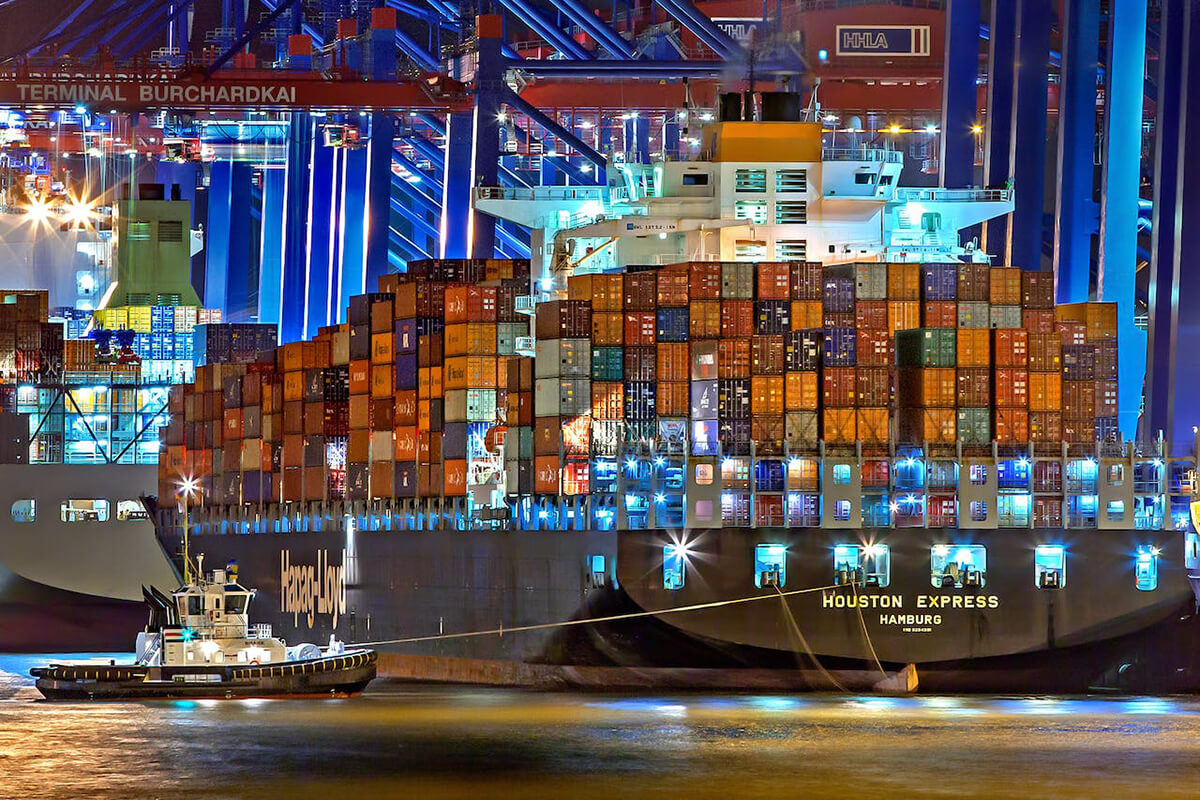
- Supply chain optimization: MySourcify can assist bulk dealers in optimizing their supply chain. By streamlining sourcing, quality control, and logistics, we help reduce lead times and enhance supply chain management.
- Time savings: MySourcify’s services save bulk dealers valuable time by handling numerous aspects of the sourcing and procurement process. Clients can focus on their other business activities rather than getting bogged down in operational details.
- Strategic sourcing: MySourcify works closely with clients to develop strategic sourcing plans. They help bulk buyers identify the most cost-effective sourcing strategies and offer guidance on long-term sourcing relationships and supplier diversification.
- Comprehensive support: MySourcify provides comprehensive support, from supplier identification to final order fulfillment. This end-to-end service ensures that international bulk dealers have a single point of contact to manage all their sourcing and import needs.

FAQs about How to Import from China in 2024
1. How can I find reliable suppliers in China?
Research online marketplaces, attend trade shows, use supplier directories, and consider hiring a sourcing agent to find reputable suppliers in China.
2. What are Incoterms, and how do they affect my import process?
Incoterms, like Delivery Duty Paid, refer to internationally recognized commercial terms that delineate the roles and obligations of both buyers and sellers involved in global trade transactions. Understanding Incoterms helps clarify who is responsible for shipping, insurance, and customs clearance at each stage of the process.
3. How can I calculate import duties and taxes?
Duties and taxes incurred during imports are determined by factors such as the goods’ value, product type, and the import regulations specific to your country. Customs authorities or import duty calculators can help you determine the exact amount.
4. What is the role of a customs broker, and do I need one?
A customs broker assists with customs clearance processes, ensuring that your goods comply with import regulations. While it’s not mandatory to use a customs broker, their expertise can simplify the import process, especially for complex shipments.
5. What should I do if my goods are damaged or lost during transit?
Insure your shipments to cover potential losses. If damage or loss occurs, document the situation thoroughly and file a claim with the shipping carrier and your insurance provider.
Conclusion
Importing goods from China in 2024 requires a nuanced understanding of ever-evolving global trade dynamics. The landscape of international trade is continually shaped by economic policies, geopolitical shifts, and technological advancements. To succeed in your importing endeavors, it is imperative to stay informed, adaptable, and resourceful.
In this guide, we’ve explored the fundamental steps to import products from China, from finding reliable suppliers to navigating complex legal and logistical challenges. However, it’s essential to recognize that regulations and best practices are subject to change. Therefore, the key to a successful import business in 2024 lies in continuous education and proactive adaptation.Be vigilant about updates in trade policies, tariffs, and import-export regulations. Leverage technology and data analytics to optimize your supply chain, enhance efficiency, and mitigate risks. Keep visiting this guide when you decide to import from China. If you need any assistance in this regard, MySourcify is always just a one-click away.


